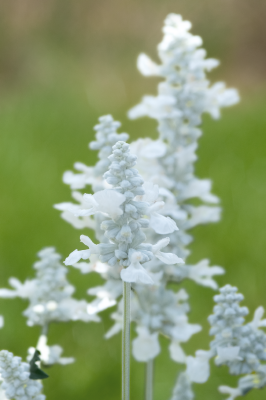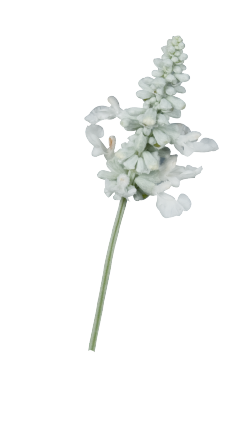

Evolution® White
Item no.: SF0201R- Vigorous, well-branched and floriferous
- Ideal container plant
- Versatile beauty in two colors
- Thrives in a wide range of climates and exposures
- Crop Time
- Spring: 12 - 20 weeks
- Height ∅
- 21 ″ / 53 cm
- Exposure
- Sun - Partial shade
- Seed Form
- Raw Seed
- Best Uses
- Bedding, Landscape, Pot Plant
Culture guide
Usage
Plant for bedding, pot and container plant for patio, cut flower production
Sow time
December-April for flowering in pots from April onwards; May-June for flowering in pots from August onwards
Sowing method
2-3 seeds per plug, sowing directly into pot is recommended
Germination
5-10 days at 72-76 °F (22-24 °C) in a media with very low soluble salt levels. Light aids germination and uniformity of germination. Keep soil uniformly moist but not wet keep relative humidity levels near 95 %.
Growing on
Transplant into pack, pots or larger containers with a well-drained media. Avoid high fertilization levels until plants have rooted out into the pot. Finish at 60-65 °F (15-18 °C).
Media
Use a well-drained, growing perennial substrate with 0-15 % clay, 0-15 % parts (e. g. bark, wood fibres, perlite), 1-3 kg/m³ complete balanced fertilizer, 0-2 kg/m³ slow release fertilizer (3-6 months), iron-chelate, micronutrients, pH: 5.5-6.5. Field: humus, loamy soils with good drainage. Standard fertilization: 50-80 g/m² of a slow release fertilizer.
Temperature
Grow at 14-16 °C. When the buds are visible, the temperature should be decreased to 14 °C. S. farinacea does not tolerate frost.
Fertilization
Moderate-high fertilization levels are required. Fertilize the crop weekly with 200-250 ppm nitrogen (at 0 kg/m³ slow release fertilizer in substrate), using a complete balanced fertilizer. The roots are sensitive to high salt levels in substrates. Avoid high fertilizer concentrations, it is advisable to fertilize several times with low concentrations weekly.
Stage I Starts with the radicle breaking through the testa. The roots are touching the medium. Ends with fully developed cotyledons.
Stage II Starts from fully developed cotyledons. Ends with the fully developed true leaf or true leaf pair.
Stage III Starts from the fully developed true leaf or true leaf pair and ends with 80% of the young plants being marketable.
Stage IV All young plants are ready for sale and in the process of being hardened off. This stage lasts about 7 days.
The cultural recommendations are based on results from trials conducted under Central European conditions. Different conditions in other parts of the world may lead to deviations in results achieved.

